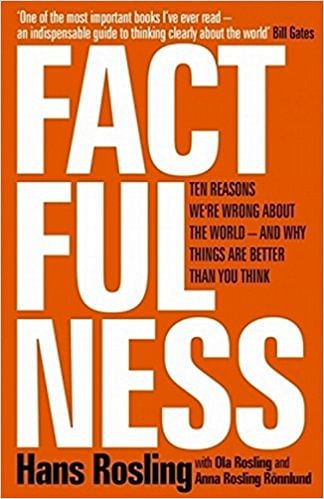
Microsoft founder and philanthropist Bill Gates called this ‘one of the most important books’ he’s ever read.
The book Factfulness moots the issue of ‘negative perception’ and points out the misconstrued way in which people view the world when it comes to facts. The book shows how the preconceived notions we hold shapes our perception, and how we do not care to even fact-check them.
Author Hans Rosling begins by posing 13 multiple-choice questions on subjects such as poverty, education, health and climate, and claiming that on average people scored two correct answers, including scientists and Ivy-league graduates.
The book that exceeds 250 pages revolves around those 13 questions and explains why a majority of people who took the test failed to answer them correctly.
Rosling, through his book, aims to bring out the negativity instinct among people, which he defines as “our instinct to notice the bad more than the good”. On various occasions, he blames, or holds journalists responsible for creating a pessimistic perception in people’s minds that “the world is getting worse”, which he claims, is not the case. The author demonstrates this with multiple charts and graphs.
The book, co-authored by Rosling’s son Ola Rosling and daughter-in-law Anna Rosling Ronnlund, mentioned various instances where the world has gotten better, including the eradication of Ebola by a team he was a part of.
“Facts must be seen from different angles to get an accurate understanding of the situation. Viewing something from a single perspective can limit one’s imagination.” These two lines capture the essence of this book published by Sceptre.
Rosling also gives various interpretations to the word ‘factfulness’, one of them being: “Factfulness is… recognising when we get negative news, and remembering that information about bad news is much more likely to reach us.”
To a pessimist, the book might seem as a proficient attempt to convert them into an optimist.
Rosling’s book is a work of marvel and courage as it tried to encroach upon an area that is yet to be explored: perception-based fact. The influential compass of the book can be judged by the fact that Microsoft founder and philanthropist Bill Gates called it “one of the most important books” he’s ever read.






COMMENTS